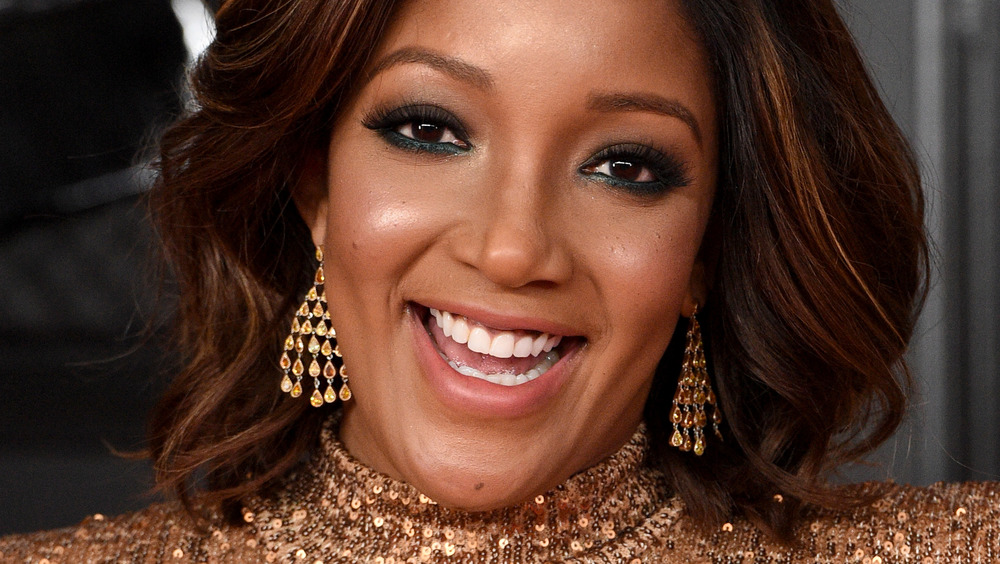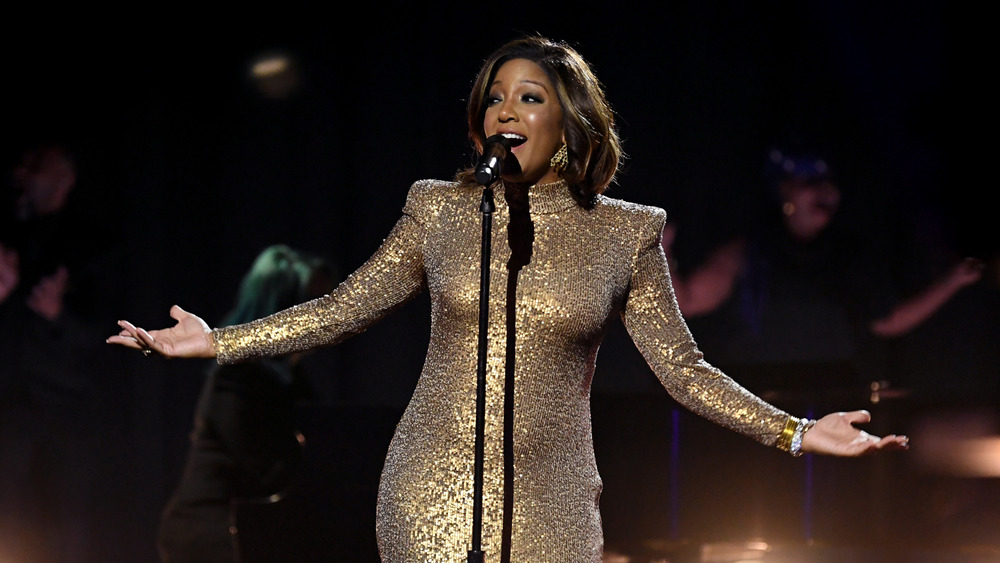Mickey Guyton's Black Like Me Lyrics Explained
Before 2020, Mickey Guyton told CNN, "I always felt like I was almost there." At the 2021 Grammy Award ceremony, she's made history. Mickey Guyton, who Pitchfork reports is the only Black woman signed to a major country music label, also became the first Grammy-nominated Black solo female artist in country music history (via NBC News). That's thanks to her ballad, "Black Like Me," a track, says CNN, that Spotify users had streamed over 6 million times as of New Year's Day 2021, and that flooded her social media inbox with thank you notes. When the country star performed her hit track at the 63rd Annual Grammy Awards, she celebrated on Twitter: "It was so special to be able to perform 'Black Like Me,' a song that is so so special to me," Guyton wrote, "Sharing this moment together is something I will never forget."
That's because "Black Like Me" is intensely personal. While Mickey Guyton released the track shortly after George Floyd's death, she'd had it written well before. And she'd wanted to write it well before that. "When we finished it, [writer-producer] Nathan Chapman said, 'This could either be the biggest song of your career, or it's gonna make a lot of people angry. But I think we just wrote one of the most important songs of your career,'" Guyton recounted to NPR.
Why Mickey Guyton released Black Like Me without permission
"It's a hard life on easy street, Just white painted picket fences far as you can see, " Guyton crooned the chorus of her hit track during the 2021 Grammys, "If you think we live in the land of the free, you should try to be Black like me." The song wasn't supposed to come out when it did, or like it did, at all. Guyton ended up posting it to her Instagram, no fanfare attached, after she reached a breaking point. "I saw Ahmaud [Arbery]. And then I saw Breonna [Taylor]. And then I saw George," Mickey Guyton told NPR, "I just put 'Black Like Me' on my Instagram. No permission, no nothing. I just put it out there because people need to hear that. ... This is about the bigger spectrum of things and about humanity."
According to The Boot, Gutyon borrowed the title of her song from a 1961 nonfiction book by John Howard Griffin, a white journalist who took skin-darkening medicine to live the life of a Black man in the segregated South (via Good Reads). But while the lyrics of "Black Like Me" are sometimes, almost unbearably painful, the story behind the song's creation is not. "It was a 'God moment,' it was a unity moment," Guyton told The Boot. "It really just goes to show, if you really, truly do try to understand somebody else's perspective, you really can. Just, a lot of people don't try."

